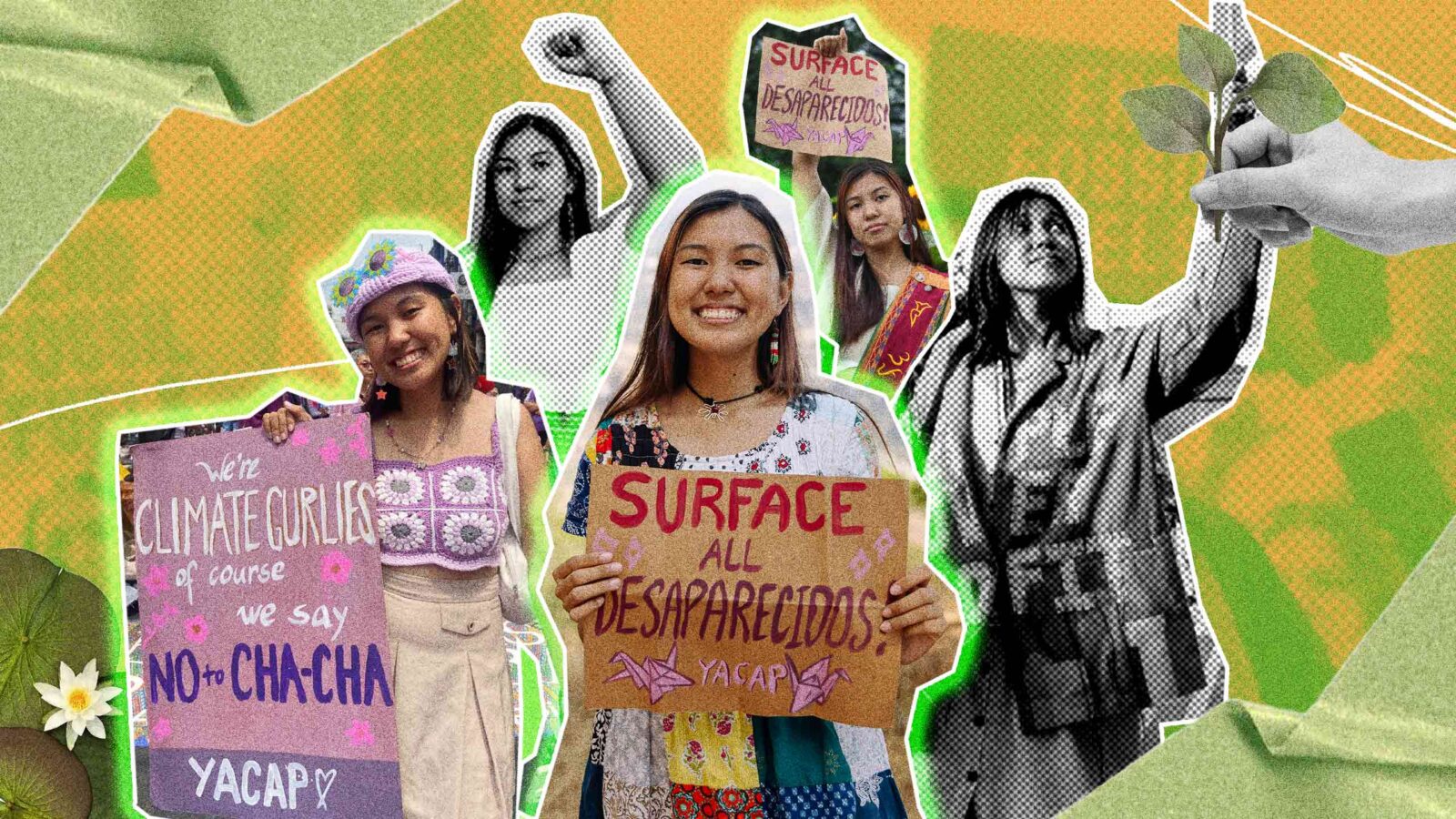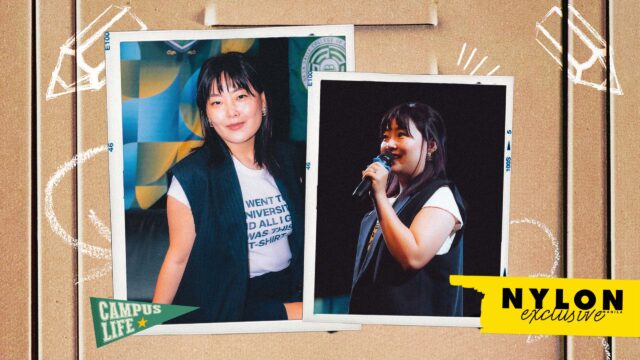What’s a day in the life of a Filipino Gen Z climate activist like? YACAP organizer Alab Mirasol Ayroso lets us in on what it’s like to advocate for people and planet.
It’s not easy to hold onto hope in a world that makes it so easy to lose it, but in any life path you choose, the people around you make the burdens easier to bear. In the world of advocacy and activism, whether you’re defending land or standing in solidarity with people, learning about the world and wanting things to change could lead to taking steps to transform your life—and plenty of young leaders have done so.
Gen Z leaders and advocates have long been campaigning for climate action and mitigation as well as standing up for marginalized communities. One of such young leaders is one of the founders and formerly the national coordinator for Youth Advocates for Climate Action Philippines (YACAP), Alab Mirasol Ayroso. She is a climate justice activist currently serving as an organizer and spokesperson for the organization. She is also a member of other youth orgs like People’s Rising for Climate Justice Youth.
The daughter of a mother with indigenous roots and a land defender father who was the victim of enforced disappearance, Alab chose a life advocating for people and land. She’s also a BS Biology graduate from UP Diliman with a focus on ecology and community-centered conservation.
Besides doing on-ground organizing and campaigning work with YACAP, Alab has also traveled the world for international climate conferences and events like the United Nations Climate Change Conference, connecting with advocates and climate activists from different countries, discussing pertinent issues regarding climate and human rights, and demanding for change on large platforms.
To get a glimpse into the life and motivations of a Filipino climate activist, read the full interview with Alab below!
FIGHTING THE GOOD FIGHT WITH ALAB MIRASOL AYROSO
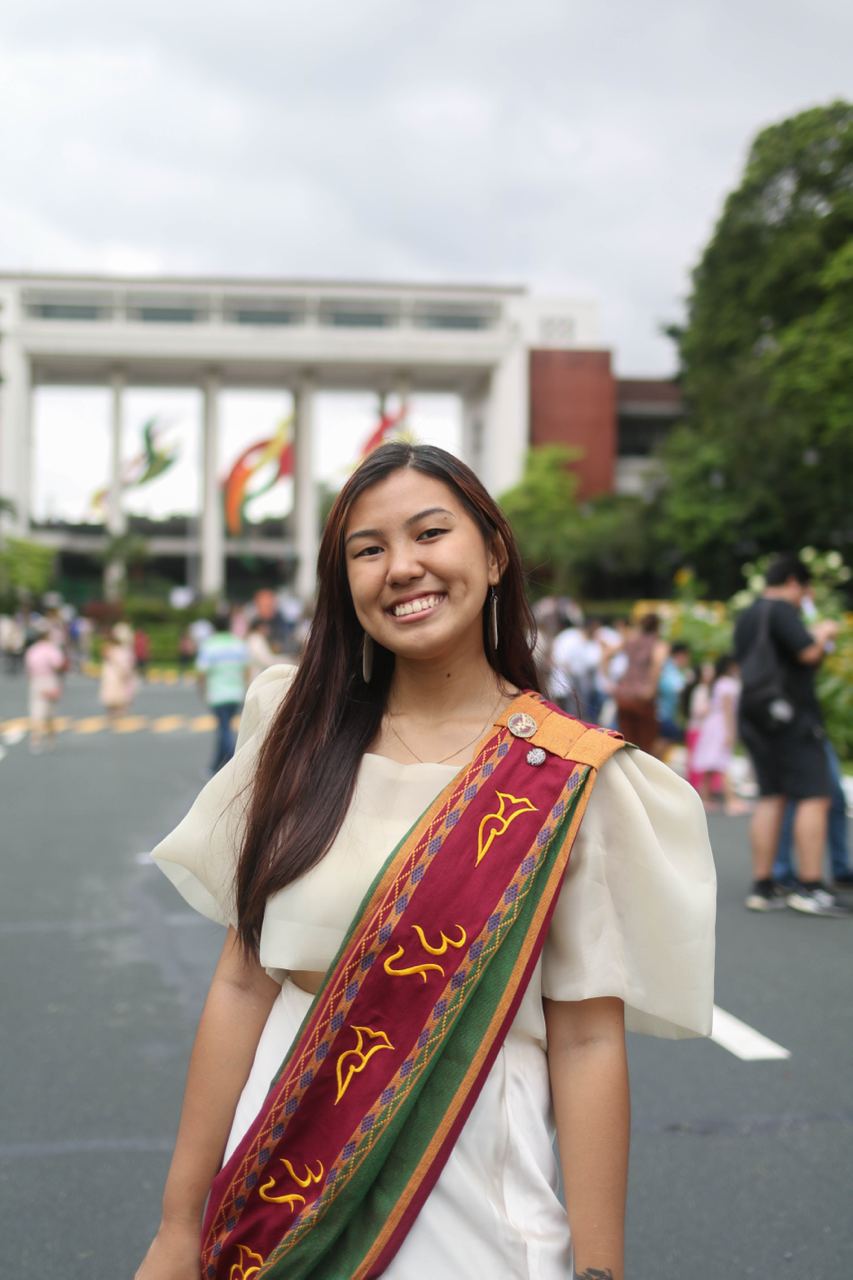
What is life like as a young climate justice activist? What is the work that you do?
What we do is essentially voluntary. This is a life that we chose, and I chose this early on during my undergrad years in college. When I started joining my organizations, I saw that the world was so much bigger than just my classroom. I saw that you can make change by campaigning, organizing, by getting people to understand the different social issues in the world, both climate and human rights, and how they’re interconnected, it became so much more fulfilling than answering my homework.
The life of a climate activist is very much dependent on the different projects that they’re doing, whether it be something in climate education or hosting a fashion show. All of this points towards one direction of organizing, of getting people to understand these issues better in order for more people to take action and for more people to come together to demand the rights that we’ve been calling for.
As part of YACAP, you also attended COP29 last year. [YACAP has been present at international climate conferences for years.]
What we do [at COP] is basically bringing the demands and calls of Filipino youth to the international stage. Because even if we say that everyone is impacted by the climate crisis, it’s still very different when you hear it from the farmers, from the fisher folk themselves. And you don’t really get to see that in those international spaces, where they talk in very technical terms—very separate and disengaged from the communities that are actually affected by climate change.
So that’s usually the main purpose of being there, aside from creating international solidarity bonds with different climate activists as well in those spaces.
It seems to be very tough, very rough work, but it’s meaningful work as well. You also get inspired by these people you meet and work with, and the people that are fighting the same fight as you.
Exactly, it’s actually like opening up the world to us. Realizing that it’s not just us—it makes it so much better. We have all of our members, we’re reaching all these youth from different schools. It feels really good to meet other people who are doing the same thing [abroad]. It makes it feel very much possible that we’re creating a better world because we’re all doing this in different areas in different ways, but it’s all towards the same goal of calling for more progressive changes.
What are some meaningful interactions or conversations you’ve had during global conferences for climate action that have stuck with you?
I have a friend from Mexico, Adriana—she got into the climate movement because of what was happening in her home, where there are also extractives. We got to talking about the destruction happening in our hometowns, and it stuck to me that even if we come from different ends of the world, we’re all fighting for the same things. When we’re in those spaces, we are standing united together, and it’s very powerful that we get to do that. We’re very fortunate that we get to actually meet in those spaces.
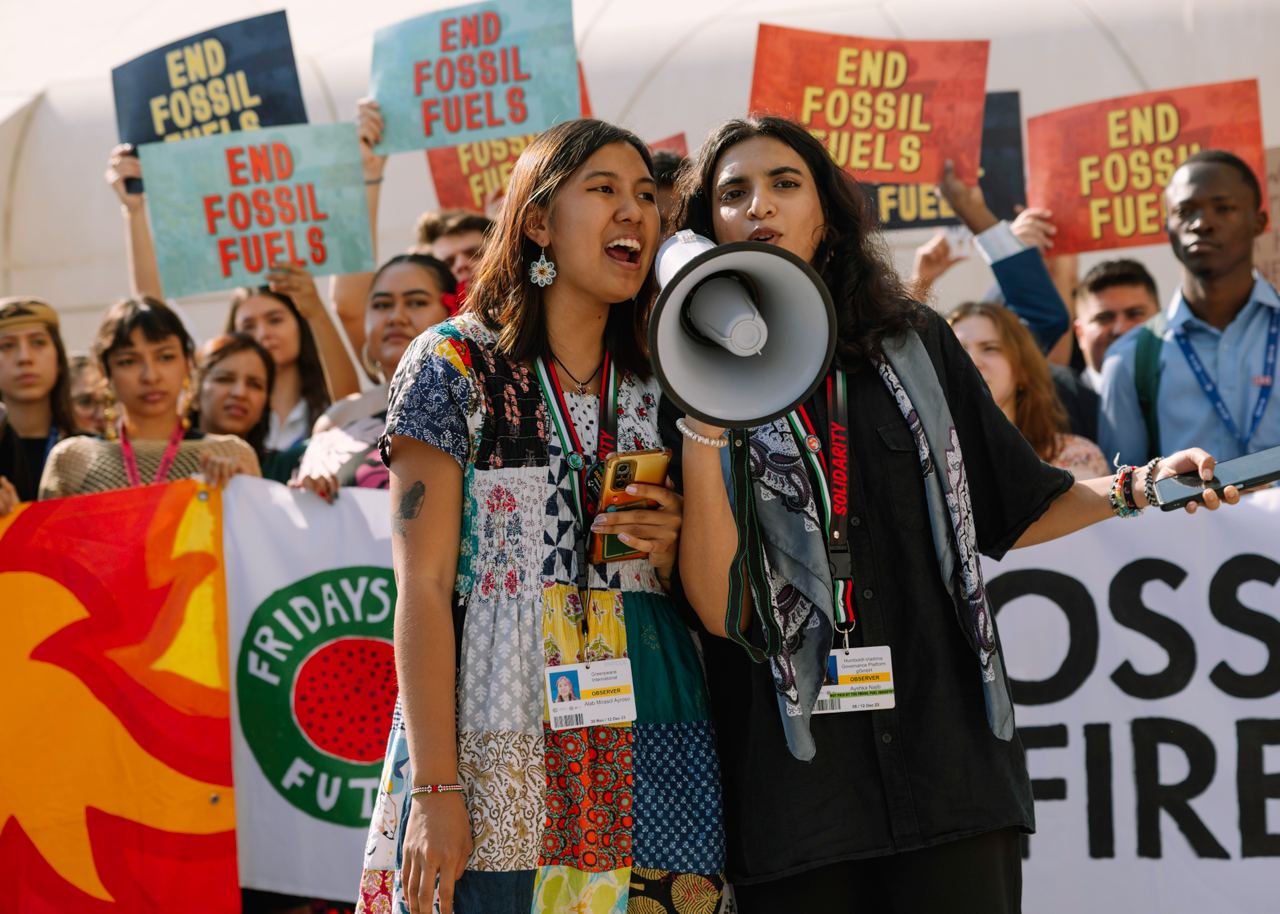
It’s pretty inspiring to see so many young people lead the fight for climate justice, and the movement has gained much traction over the last several years. As someone part of an organization specifically for this movement, what impact do you think the youth has on climate mitigation and action?
The youth holds all the power for the future. I really do believe that our decisions and our actions now will impact the rest of our lives, the rest of our futures, and the generations ahead of us. We are making these demands because we want a better future. When we make [our voices] louder and we connect with the different sectors—we are making known all the changes that we want to see.
If enough people are there to show up and enough to demand it, it’s possible to push for policies. It’s enough to stop projects that are destructive, and it could change the path of the rest of the world.
Seeing people demand action from corporations and governments, and them actually taking action, could really make you hopeful despite it all. Even small steps can make a meaningful difference. Here’s hoping more conferences are more productive than they usually are!
Right! Actually, our stance when it comes to these conferences—it’s definitely to criticize it. Obviously, it’s not enough that they have these annual meetings. There’s 29 of them already, pero parang wala pa ring nangyayari. But at the same time, there’s so much attention on it and people are really engaging with it because people are hopeful that these negotiations will end up somewhere. As long as we hold on to that hope, we also have to be critical about how maybe they’re just playing the game just so they get the [reaction] that they want.
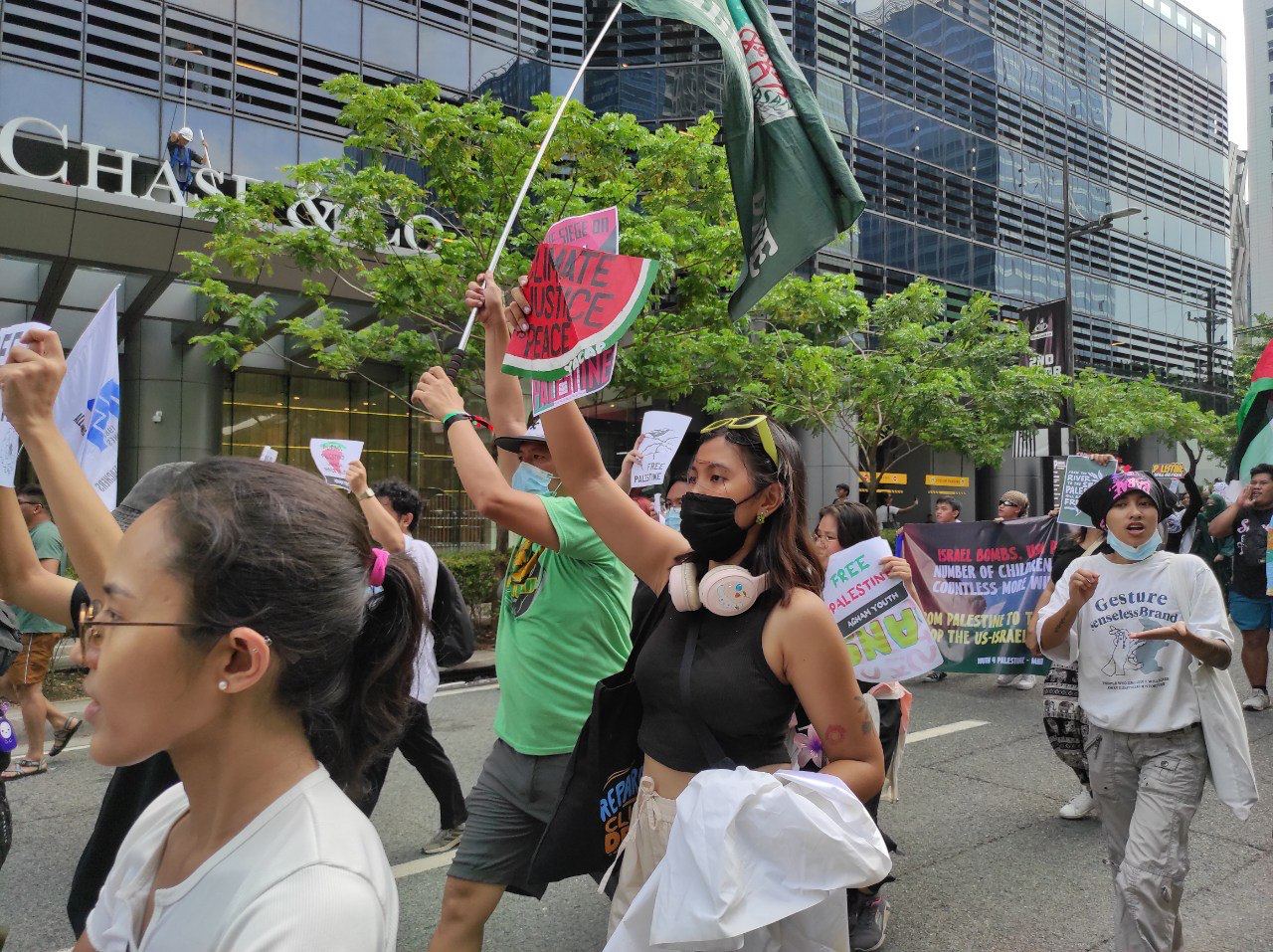
Seeing how these global conferences turn out, and how global leaders are moving less than ideally regarding climate action and climate justice, how do you ensure you don’t fall into the common pitfall of “climate doomism”? How do you stay inspired and feel uplifted despite it all?
I think there’s two ways. One, internally, wherein we cope with each other because we live as a collective, me and my members, especially the full-time activists in YACAP. Basically we inspire each other because we’re all very capable of many things. Nasasalo namin yung isa’t isa. That’s one, being there for each other and caring internally. Another is getting inspiration from everyone else. Like meeting other people from different parts of the world or even from the communities in the Philippines.
While advocating for causes on social media and the Internet is important as well—when you reach out to communities and see the people you’re fighting for and with, it’s a very different experience.
We really try to do it more regularly—community visits. It’s a way to really [remind] yourself that this is why we’re doing it, this is who we’re doing it for. We inspire each other because whenever we have these community visits, lagi silang nagpapasalamat na bumisita kami, nagpapasalamat sila na we’re one with their fight. It’s very heartwarming because we’re like, “pumunta lang kami dito, anong ginawa namin?” But just the fact that we were there and we wanted to learn about them, it makes it better and it inspires us.
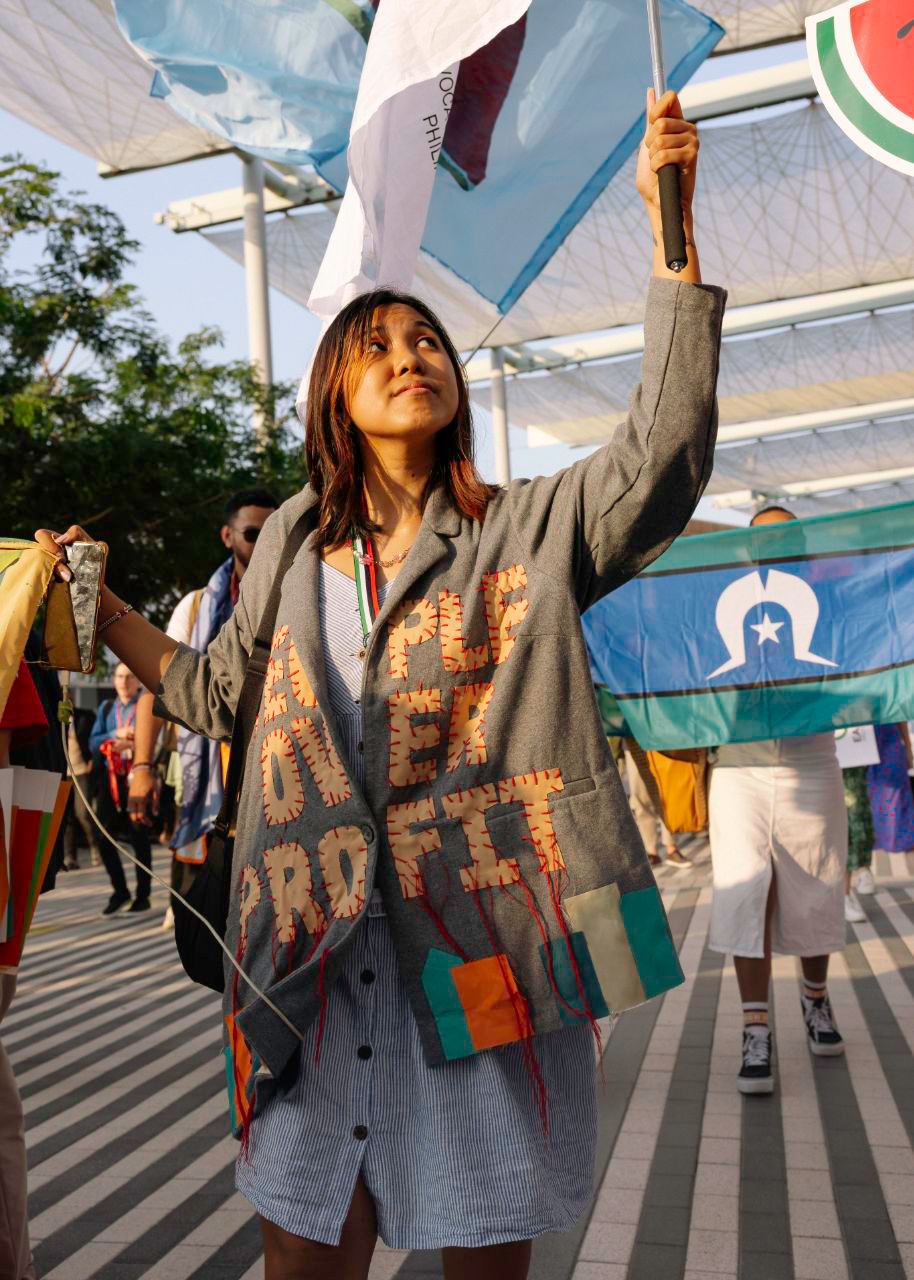
It can be easy for people to separate the climate crisis and climate justice from the human rights aspect of it all. Could you elaborate on the notion that the fight for human rights is the fight for climate justice?
I get that some people would tend to separate it. I think it all boils down to what is the fight for climate? Maybe that’s the kind of question that we want to ask. Para kanino ba yung fight for climate? Isn’t it for future generations? Isn’t it for the people who are suffering right now? And what is the one thing that we want to ensure that they have? What is the one thing that they’re not getting—that’s human rights.
It’s their right for livelihood, it’s their right for food, it’s their right for clean water, and because of climate change, those rights are being robbed from them. Another side of it is the people who are trying to fight for these rights—the people who are trying to help farmers, the people who are trying to help indigenous peoples by organizing, by being part of these organizations—sila pa yung naha-harass, sila pa yung nakakasuhan, nare-redtag, sila pa yung pinapatay at nadudukot.
We have to bring it back to the basics of para kanino ba ‘to—what are we doing when it comes to climate change and why we don’t want it to worsen. It’s going to lead to a lot of people suffering. It also goes hand it hand with protecting the people who are [advocating] for land and climate justice, the call to demilitarize, to stop wars, to stop genocide. We go back to the call that we can’t have climate justice if we don’t have human rights.
Interview edited for length, form, and clarity. Photos courtesy of Alab Mirasol Ayroso.
Continue Reading: At Fashion Against Fascism & Fossil Fuels 2024, Advocates Called For Climate And Social Justice—In Style
